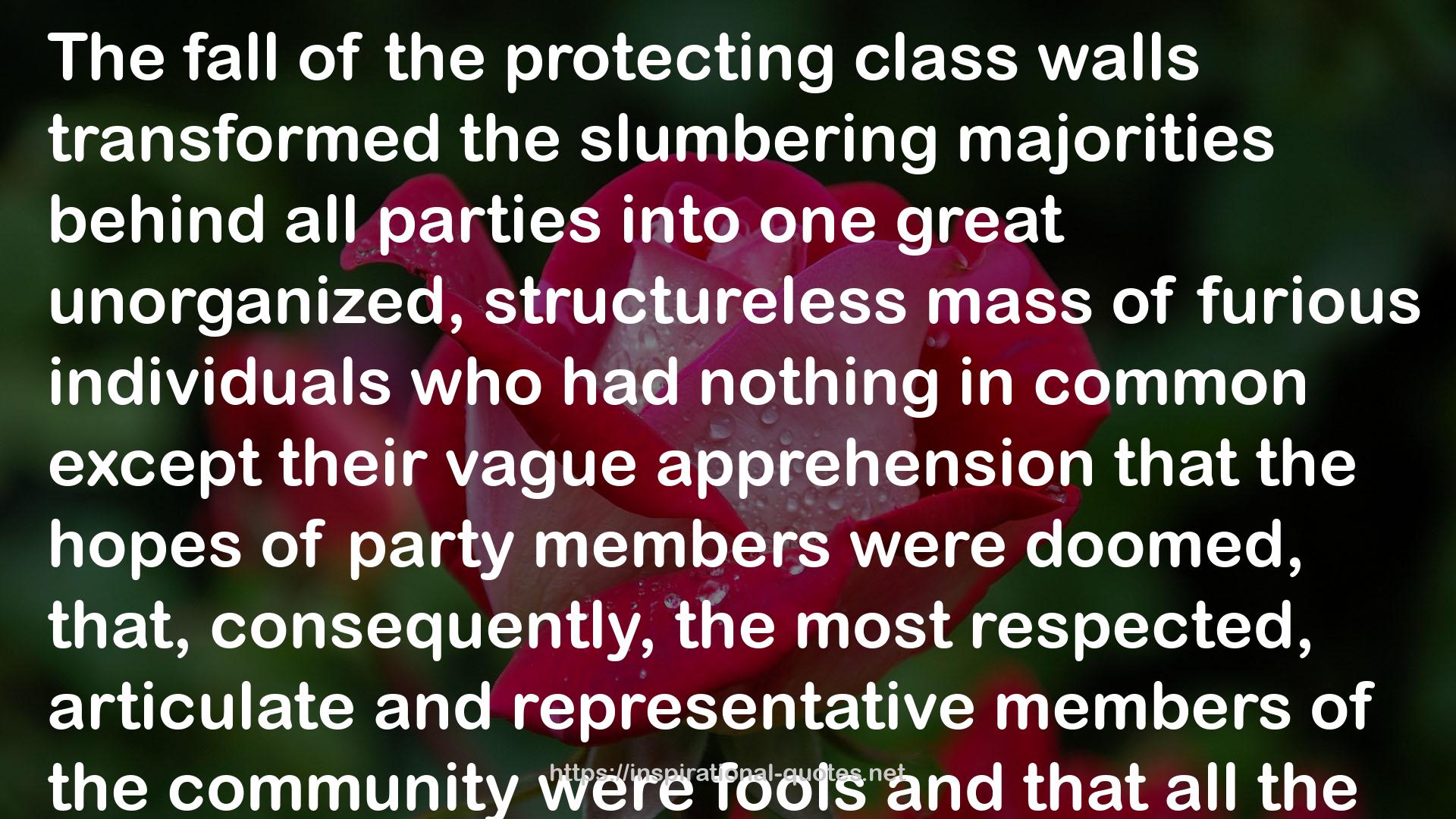" The fall of the protecting class walls transformed the slumbering majorities behind all parties into one great unorganized, structureless mass of furious individuals who had nothing in common except their vague apprehension that the hopes of party members were doomed, that, consequently, the most respected, articulate and representative members of the community were fools and that all the powers that be were not so much evil as they were equally stupid and fraudulent. It was of no great consequence for the birth of this new terrifying negative solidarity that the unemployed worker hated the status quo and the powers that be in the form of the Social Democratic Party, the expropriated small property owner in the form of a centrist or rightist party, and the former members of the middle and upper classes in the form of the traditional extreme right. The number of this mass of generally dissatisfied and desperate men increased rapidly in Germany and Austria after the first World War, when inflation and unemployment added to the disrupting consequences of military defeat; they existed in great proportion in all the succession states, and they have supported the extreme movements in France and Italy since the second World War. "
― Hannah Arendt , The Origins of Totalitarianism
